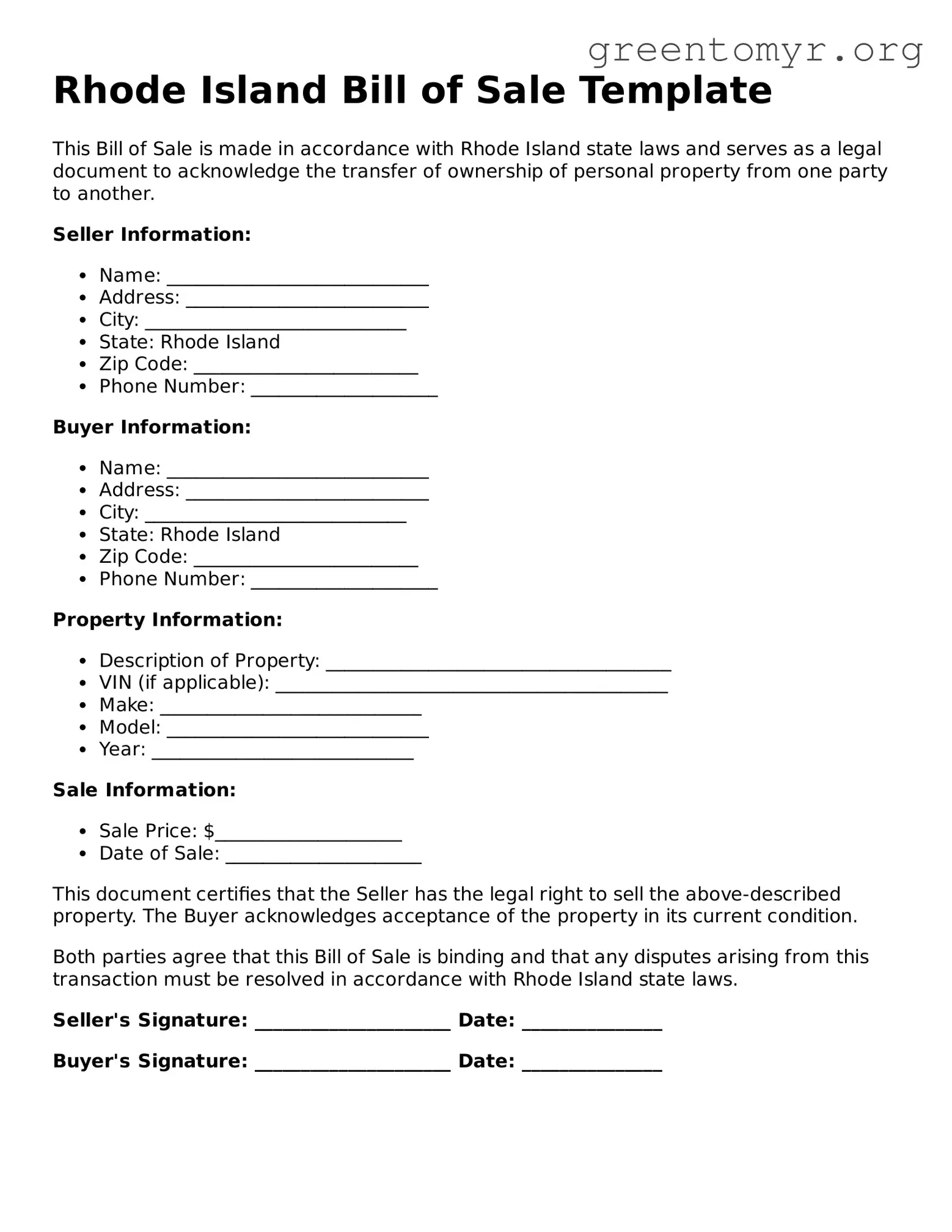Completing the Rhode Island Bill of Sale form can be straightforward, but there are common mistakes that individuals often make. One frequent error is not including all required information. Missing details, such as the seller's or buyer's full names or addresses, can lead to delays or disputes later on.
People also frequently forget to accurately describe the item being sold. Inadequate descriptions can leave room for misunderstandings about the condition or specifications of the item. It's essential to include essential details like make, model, year, and any identifying numbers.
Another mistake is neglecting to indicate the purchase price. Without this critical detail, the document may not reflect the true value of the transaction, potentially complicating tax or ownership issues down the line.
Signatures are a crucial element of the Bill of Sale, yet many individuals overlook them. Both the seller and buyer must sign the document for it to be valid. Omitting signatures can render the Bill of Sale useless.
Failure to date the document is another common oversight. The date marks when the transaction occurred, and including it helps establish a clear timeline of ownership.
People sometimes confuse the different types of Bill of Sale forms. Using the wrong form for a specific type of sale, such as a vehicle or personal property, can create issues. Choosing the appropriate form is vital for ensuring compliance with state requirements.
Additionally, skipping the witness or notarization process, when required, can lead to complications. Depending on the circumstances, having a witness or notary public present might add an extra layer of validity to the document.
Providing incorrect payment information is another error that can occur. If a check is being used, making sure it reflects the amount stated in the Bill of Sale is crucial. Discrepancies can lead to mistrust or legal issues.
Lastly, failing to keep copies of the completed Bill of Sale can cause problems in the future. Both parties should retain a copy for their records to prove the transaction occurred, which can be essential for licensing or registration purposes later on.
